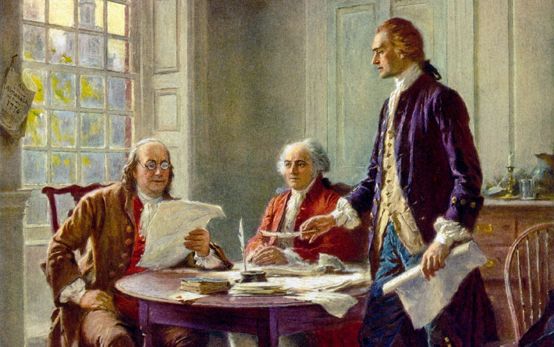The following is from my recent book: "Promises of the Constitution: Yesterday, Today, Tomorrow". Written in 1 ½ page vignettes, each can be read in
3-5 minutes. “Promises of the Constitution” teaches our inspired history, founders,
and constitutional principles in short, story-filled segments. Changes to the
Constitution and actions to restore both the inspired document and our
prosperity and peace under its protection are explained.
IN THE
CONSTITUTION:
Promises of the Constitution: Yesterday, Today,
Tomorrow
by
Pamela
Romney Openshaw
John Adams: “Our
Constitution was made only for a moral . . .people. It is wholly inadequate to
the government of any other.”
Benjamin
Franklin: “Only a virtuous people are capable of freedom. As nations become
corrupt . . . they have more need of masters.”
Because of our
moral beliefs, we care about others and value their wellbeing. We are tender
at the pain of another, and we take care not to prolong or increase the pain.
We are inclined to give and desire good for others. Our morality makes us want
freedom for all of us and not just for ourselves.
Good government
is not possible among people who do not understand right and wrong. Anarchy
would reign, and there would be no freedom, no justice, no protection, and no
rights. The “law of the jungle” would prevail. No sane, thinking person would
advocate such a world!
The Founders’ political
rules made morality and the basic knowledge of religious principles central to
society. They wrote and discussed this copiously for decades. The Framers could
not and would not conceive of government without the constant influence of God
and virtue.
Our collective
belief in God is the source of our virtue. We are moral when we follow God’s
laws. If we do not follow God’s laws, political forces will step in to fill
that vacuum and impose laws upon us. William Penn, founder of colonial
Pennsylvania, explained: “Men will either be governed by God, or ruled by
tyrants.”
Calvin Coolidge,
United States president, wrote: “We do not need more law, we need more
religion.” Elsewhere, he reiterated: “Our government rests upon religion
...There is no way ...we can substitute the authority of law for the virtue of
men . . . Peace, justice, humanity, charity—these cannot be legislated into
being.”
Speaking of
God’s law, Proverbs 29:18 tells us: “[H]e that keepeth the law, happy is he.”
Not only are we happier when we keep God’s law, but we require less of man’s
law.
- Pam

No comments:
Post a Comment